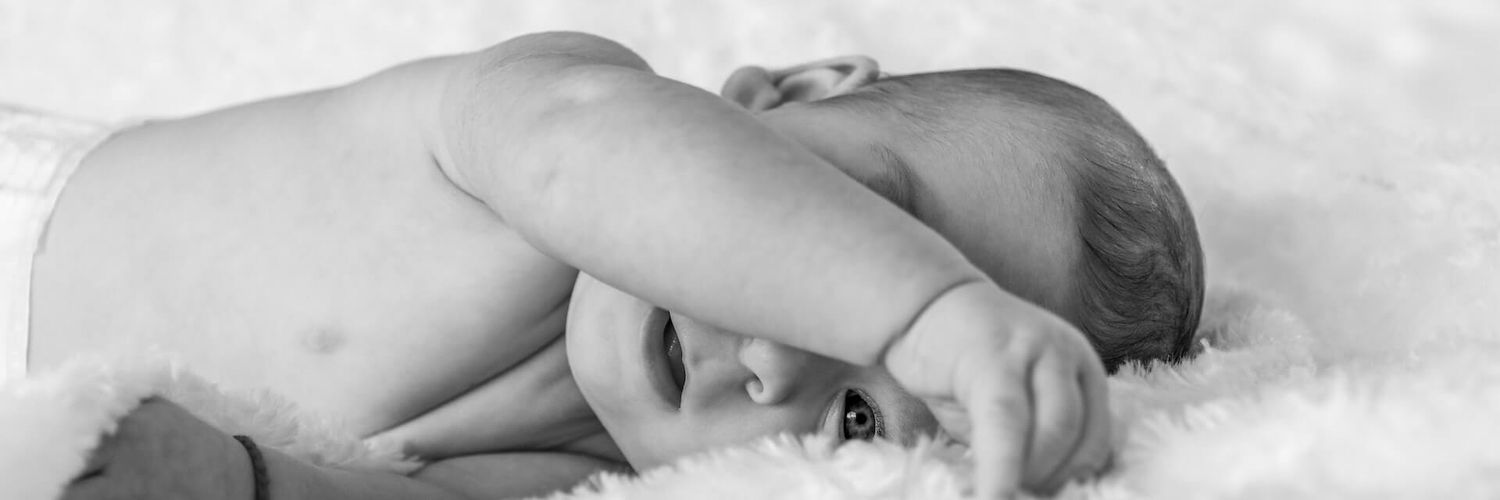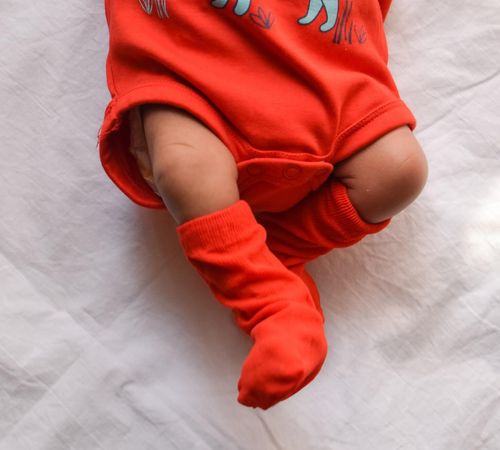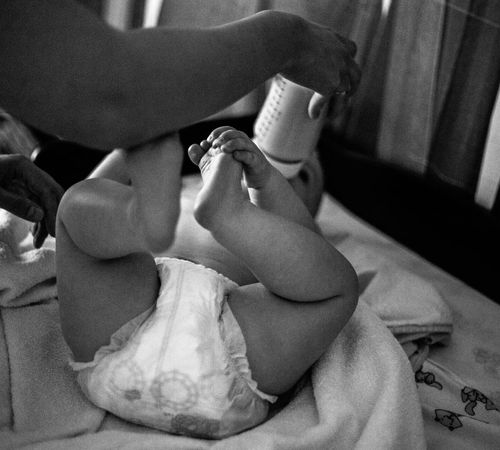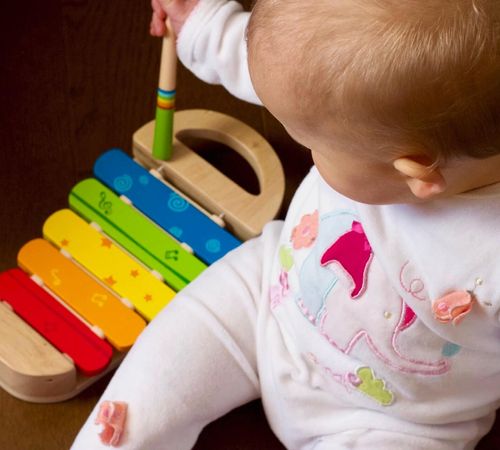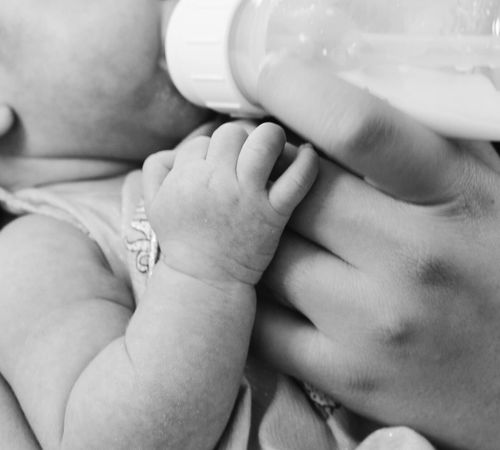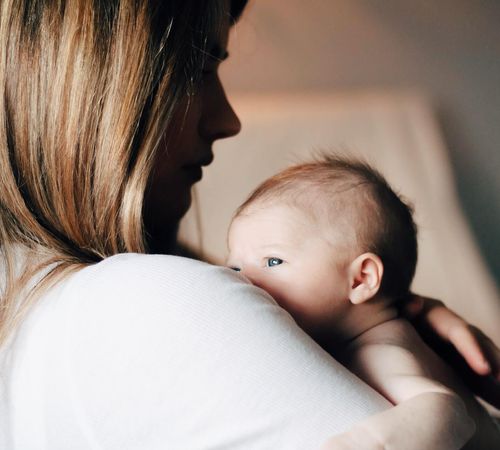Is there any parent out there that is not nap-obsessed? We all live on our baby's naps. But what happens when our little ones suddenly start to take short naps out of nowhere? If you are recently struggling with short naps or have been blessed with a cute catnapper, then continue reading to find out where those short naps are coming from.
Oh, the joys of parenthood. One minute your baby is snoozing away for hours on end, and the next thing you know, they're taking naps shorter than a TikTok video.
How could that happen so suddenly?
Well, the first you need to know is that nothing is predictable when it comes to baby sleep. They can sleep through the night one day, and the other, they wake every single hour. And this still counts as normal.
So here you are, scratching your head and wondering why your little one doesn't nap anymore and how things changed so quickly.
Nap time is not for my baby. Nap time is for me!
Well, you are kinda in luck. I know…the audacity. But we've got the scoop on why your baby is suddenly taking short naps and what you can do about it. So pick up that coffee cup and get ready for some serious nap-time investigation.
This article covers:
1. What Is A Short Nap?
We "consider" a nap as short when it is 45 minutes or shorter. Usually, babies wake after their first sleep cycle, which is usually 20-45 minutes long.
While short naps can be really frustrating for parents, you should know that they are not bad for your baby and that they are totally a thing for them. Short naps are normal for different ages and developmental stages of your baby.
So without further ado, let's take a closer look at all the possible reasons why your baby might be suddenly taking short naps.
2. Reasons Why Baby Suddenly Has Short Naps
Baby Sleep Regression
Your baby will go through several sleep regressions in the first 2 years of life. A sleep regression is a period of time in which your baby's sleep deteriorates due to changes in their cognitive or physical abilities.
The most intense sleep regressions happen at 4,8, and 12 months. During this period, it is very common for babies to suddenly start to catnap. The 4 month sleep regression is often the one that takes parents by surprise.
Physical Development Milestones
Physical milestones like crawling and walking can have a huge impact on your baby's sleep. Babies don't distinguish between day and night when it comes to practicing newly acquired skills. They will stand or sit up the minute they open their eyes and sometimes don't know how to get out of that situation again. Both my children had their most intense phases of bad sleep when they started to walk at around 1 year.
Illness, Pain, And Discomfort
Any kind of discomfort can cause your baby to take short naps. Especially teething, reflux, or tummy troubles can lead to cat naps.
At around 12 to 16 months, most babies get their first molars which can be very uncomfortable. Tummy troubles are very common in babies younger than 4 months. Their digestive system has not yet developed, leading to uncomfortable gas and bloating.
Separation Anxiety
Separation anxiety can be a leading factor for sudden short naps. Babies often develop strong separation anxiety at 8 and 18 months. Separation anxiety is often associated with cognitive development.
At 8 months, babies develop object permanence. This is the understanding that objects still exist even when they cannot be seen. At 18 months, they develop self-awareness. Only then they understand that they are a separate human being.
Isn't it incredible that until then, our babies think that they and we are one single being? How big of a change is that? All these heavy cognitive developments can lead to short naps.
Upcoming Nap Transition
Nap transitions can sometimes lead to short naps. When babies are about to drop a nap, they naturally start to take shorter naps or wake earlier from their nap than usual.
3. Other Common Reasons For Cat Naps
Overtiredness
You and I are probably so tired we could fall asleep anywhere and anytime. But it doesn't work like that with babies.
If your baby stays up for longer than their body can handle, their cortisol levels will rise, and they will not only have a hard time falling asleep, but they will also wake after their first sleep cycle because of their high cortisol levels.
Undertiredness
Often parents are so afraid of having to deal with an overtired baby that they end up putting their baby to sleep too early.
Yes, the undertired baby is real. If your baby is not awake for the right amount of time, they don't build up enough sleep pressure to sleep longer than for one sleep cycle.
Hunger
Hunger plays a big role for young infants. If your baby is younger than 4 months, hunger can be a leading cause for your baby to take short naps.
Such young babies need frequent milk feeds every 1.5-2 hours. They also often fall asleep while nursing before having a full feed and then nap only with their tummy half full.
4. 10 Tips For Short Naps
I just want to remind you that you do not have to "fight" cat naps if they don't bother you or your baby. A shorter nap is not less restorative than a long nap, and it will not influence your baby's nighttime sleep.
If, however, you want to tackle your baby's short naps for your own's sake, I've got some easy-to-implement tips on how you can achieve a longer nap.
Keep an Eye on Age-Appropriate Wake Windows
If your baby is up for longer than they can handle, their body will release stress hormones causing them to wake shortly after they have fallen asleep. On the other hand, if your baby is not tired enough, a short nap will be sufficient enough for the next round of play. That is why age-appropriate wake windows are key. If your little one shows tired signs before you put them to bed but then fights you, they are probably overtired. If they were in a good mood but falling asleep takes a very long time, they are probably undertired.
Rule Out Hunger
Very young babies need frequent feeds, and nap for 2 hours is a long time without any milk. "Eat, play, sleep" is a very widely known routine for babies. However, when your baby is not on solids yet, having another milk feed might help to extend that nap.
Create the Optimal Sleep Environment
When your baby wakes from their sleep cycle, you want a comfortable and sleep-inducing environment that helps them fall back to sleep easily. Try to eliminate all possible sleep disturbances, as babies spend a lot of time in light sleep and can wake easily.
Daylight plays a very big role. After 4 months, babies get very interested in their surroundings, sometimes preventing them from settling. So, you might prefer putting your baby down for a nap in a dark environment.
Keep a Flexible Sleep Schedule
A schedule will help babies from up to 2 months create a consistent sleep routine that adjusts their inner body clock to regular nap times. Your schedule should be flexible as your baby will not wake up exactly at the same time every day, and activities vary from day to day. It will also help you better keep track of your baby's awake time because the right wake windows will promote better napping as well. But following a rough nap schedule will not only help them sleep longer, but they also will settle easier to sleep in the evening.
Help Your Baby Get Used to Their Sleeping Environment
This especially applies to older babies (9+ months). If your little one is not comfortable falling asleep in their sleep space, they will have trouble staying asleep during naps. Try to encourage falling asleep in bed. This is not an easy task to do and may take a couple of weeks. But once your baby has the hang out of falling asleep at the beginning of nap-time in their bed (parental presence is always ok!), they will sleep for a longer stretch as well. For children older than 1 you can also introduce safe loveys or toys that they can keep in their bed. They can help them settle back to sleep.
Embrace Contact Naps
Oh no, I did it. I'm telling you something that conventional sleep trainers probably would not do. Take advantage of contact naps. Many young babies sleep perfectly when they are close to their parent. It's a normal thing that derives from natural and evolutionary human behavior. Your baby simply feels completely safe when with you. I know it may sometimes feel like a trap, but try to embrace and enjoy it. Sit down somewhere safe and feel that warm baby on your breast (and, oh my god, smell them). If you feel too restricted. You can also use a carrier or a sling with which you will still have your arms free.
Create A New Passive Sleep Prop
Sometimes older babies rely heavily on parental help to fall asleep, such as feeding or rocking to sleep. While a sleep association is not bad, it might reinforce catnapping behavior. Try to introduce passive sleep associations such as white noise and a sleep sack. You can also try to use soothing methods such as shushing, patting, and stroking. These are usually not that strong sleep associations like rocking or feeding.
5. A Method That Will Get Your Baby To Nap Longer
If you have already searched the entire internet on how you can lengthen your baby's short nap, then you might have read about the wake-to-sleep method.
The Wake-to-Sleep method is a gentle sleep training approach with which you reset your baby's internal clock and teach them to connect sleep cycles.
The general idea is to wake your baby before they wake up. When they arouse, you will help them back to sleep. This way, they learn to connect sleep cycles and will eventually sleep longer.
If you want to learn more about the wake-to-sleep method, then you need to read my blog post about this method and how it helped both my babies to stop catnapping.
6. How To Cope With Your Baby's Short Naps
It's important to understand that every baby is different and that infant sleep is never linear. While it can be tempting to compare your baby to others, it's more important to focus on their individual needs and be patient with them.
Remind yourself that this is only a phase that shall pass, too. It may feel long at this day, but the truth is that it is only a very short fraction of your child's life.
Don't obsess about your baby's short naps. Sometimes we focus on one behavior so much that it is all we can see. Learn to control your thoughts and ground yourself when those short naps are catching up to you.
And finally, take care of yourself. Self-care is often not a priority for many parents. But taking proper care of yourself and your needs as an individual will have a huge positive impact on your parenting.
7. Baby's Short Naps FAQ
Is catnapping bad for my baby?
Cat napping is not bad for your baby. Some sleep consultants will tell parents that long naps are more restorative than short naps, but that is not the case. Your baby will give you a straight answer. If they are having cat naps but are still happy during the day, how can they be bad? The only thing that is crucial for healthy baby sleep is that your baby gets enough overall daytime sleep. It doesn't matter if they achieve this through long or short naps.
However, if your baby is grumpy because they don't get the overall sleep and you fear it is interfering with night sleep, then you might need to think about trying to extend their naps.
Should I resettle if my baby wakes from a short nap?
Sometimes babies will wake shortly between sleep cycles. They might make noises but fall back to sleep fairly quickly. If your baby is not crying, you can give it 5-10 minutes to see if they fall back to sleep. If they cry, it's really up to you if you want to resettle them or not. However, if they were awake for too long, it will be quite difficult to get them back to sleep.
My baby sleeps well at night but has short naps. What are the reasons?
Interestingly many babies sleep very well at night but nap poorly during the day. For one, your baby is getting so much quality sleep without almost no interruptions, they might have a lower sleep drive during the day. The overall amount of hours of sleep your baby needs in 24 hours will be the same. The amount of sleep they get during the day will be compensated at night. So instead of focusing too much on their short naps, figure out how much sleep they need overall. If they are happy and content even though they have short naps, then everything is fine.
Will my baby grow out of short naps?
Yes, all babies will eventually grow out of short naps. And not only because they give up napping completely but because cat napping is normal young infant behavior. As your baby grows, their sleep pattern matures, and their sleep cycle becomes adult-like. Most babies outgrow catnapping between 9-12 months.

